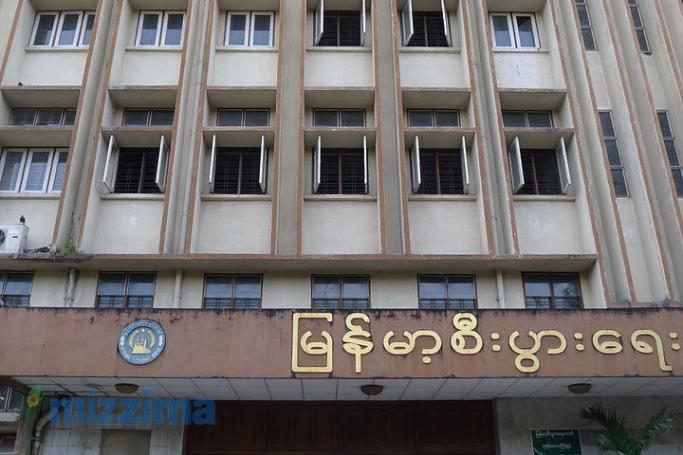Myanmar's central bank has started unrestricted sales of foreign currency at its own specified rate to help importers hit by exchange rate fluctuations over the past two weeks reported Reuters on 18 June.
The kyat has weakened by 26 percent since Myanmar introduced a managed float in 2012 to try to end the disparity between official and unofficial exchange rates. The move was the first significant economic reform by a semi-civilian government that took office a year earlier.
But the gulf between unofficial and official rates has again widened, with dollars in short supply as Myanmar's imports outpace exports.
The foreign currency sales started on Wednesday with the aim of easing pressure on importers of fuel and edible oil, the state-owned Global New Light of Myanmar newspaper said, citing deputy central bank governor Set Aung.
The state-run Myanma Economic Bank and Myanmar Investment Bank would begin selling foreign currency on Monday, it said.
The dollar was offered at 1,150 kyat in exchange kiosks in Yangon on Thursday. The official exchange rate was 1,105 kyat, down 26 percent from the 818 kyat when the managed float started.
Foreign currency trading is permitted within a range of 0.8 percent above or below the official reference rate. Trading outside that band could result in the loss of foreign exchange licences.
There are about 20 local private banks and around 200 money changers holding licences. Foreign banks cannot offer foreign exchange services.
Private banks regularly put in orders for around $20 million at the central bank's daily dollar auction, but it typically sells only $300,000 to $500,000.
Several unlicensed dealers were detained last week in a bid to halt black market transactions. The kyat weakened to 1,290 a dollar but gained strength when news of the arrests slowed unofficial trade, dealers said.
Myanmar's foreign trade has grown quickly but, as imports outpaced exports, its trade deficit jumped 88 percent to $4.9 billion in the fiscal year that ended March 31, according to official data.
A rise in foreign investment, tourism and remittances from overseas workers have helped plug the gap but dollars remain in short supply and the greenback's rise against emerging market currencies in general has exacerbated the kyat's weakness.
Sean Turnell, an expert on Myanmar's economy at Sydney's Macquarie University, said measures to support the kyat were "self-defeating".
"Where the problem comes in is via the efforts to artificially hold up its value," said Turnell.
"All they really do is add fuel to the idea that there might be a shortage of forex, undermining confidence in the kyat and Myanmar's financial arrangements broadly."
You are viewing the old site.
Please update your bookmark to https://eng.mizzima.com.
Mizzima Weekly Magazine Issue...
14 December 2023
Spring Revolution Daily News f...
13 December 2023
New UK Burma sanctions welcome...
13 December 2023
Spring Revolution Daily News f...
12 December 2023
Spring Revolution Daily News f...
11 December 2023
Spring Revolution Daily News f...
08 December 2023
Spring Revolution Daily News f...
07 December 2023
Diaspora journalists increasin...
07 December 2023
Myanmar Suu Kyi supporters blocked from campaigning in Thailand












